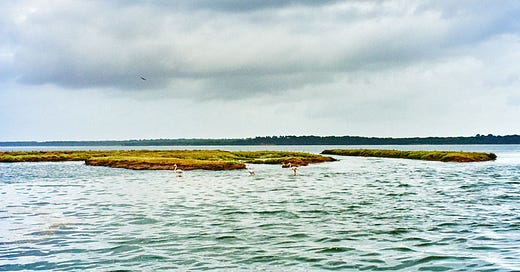It’s safe to say that the old Western liberal order is in decline. The coming years will see its dismantling on multiple fronts, and conservation will be no exception. Public funding for nature conservation is already wavering, caught between shifting political priorities and economic constraints.
The Trump administration’s withdrawal from the Paris Agreement marked the beginning of a broader campaign against liberal environmental policies. Project 2025 — the Republican blueprint for the next administration — prioritises deregulation and fossil fuel expansion over domestic conservation. Proposals include dismantling ecological protections, exiting climate agreements, and defunding renewable energy programs, such as abolishing NOAA and repealing emissions regulations.
Meanwhile, economic stagnation is forcing budget cuts in Europe, leaving conservation efforts on shaky ground. The UK has already frozen promised environmental grants to farmers, putting projects like hedge planting and waterway restoration at risk.
A Shift in Strategy
Yet, regardless of political leanings, most people still consider a liveable environment essential. Conservation and biodiversity will remain crucial for the future. But if conservationists want to keep their cause relevant, they must learn to speak a new language.
Terms like biodiversity and conservation sound academic and technocratic. They are often perceived as part of a liberal narrative that large portions of the electorate instinctively reject. Reframing the message is essential.
Reframing the Message
Don’t say: Protecting biodiversity means securing our future.
Say: Protecting nature’s web of life means securing our future.Don’t say: Biodiversity is shrinking, and so are our survival chances.
Say: The living world is shrinking, and with it, our chances for survival.Don’t say: We all pay the price when biodiversity is lost.
Say: We all pay the price when nature’s balance is lost.
Likewise, replacing the act of conservation with more accessible language can make the difference:
“Keeping nature thriving means securing food, water, and stability for all.”
“Safeguarding the natural world isn’t about limiting growth but securing our future.”
“Restoring what keeps us alive isn’t optional — it’s survival.”
“Protecting our wild heritage ensures that future generations inherit the world we love.”
“Strengthening nature’s defences protects our homes, farms, and cities.
And for those ready to take a bolder step — why not swap conservation for rewilding altogether?
Don’t say: A thriving conservation sector is crucial for a liveable future.
Say: Efficient rewilding is critical for a liveable future.
A Necessary Evolution
Nature conservation, as we once knew it, is politically dying. But that doesn’t mean it can’t be revived — just not under the same old banner. Shifting the language is the key to ensuring its survival in an increasingly polarised world.




